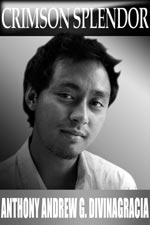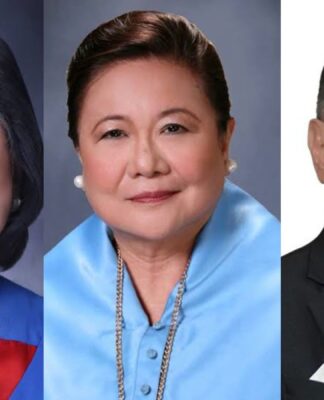 “UNORTHODOX, physical and devastatingly effective” was how Time correspondent Eben Harrell described the game that brought tennis’ hottest property of late to the ATP tour summit in a preview article for the just-concluded Australian Open.
“UNORTHODOX, physical and devastatingly effective” was how Time correspondent Eben Harrell described the game that brought tennis’ hottest property of late to the ATP tour summit in a preview article for the just-concluded Australian Open.
True enough that Harrell portrayal of today’s million-dollar game, owned by one Rafael Nadal, spoke volumes not just on paper but more tellingly on the grass surface as the 22-year-old Spanish sensation mastered Swiss rival and world no. 2 Roger Federer anew in five grueling sets, 7-5, 6-3, 7(7)-6(3), 3-6, 6-2, to claim his first Australian Open trophy and sixth grandslam title.
That same game not only denied Federer a Sampras encore as the Swiss shotmaker failed to secure his 14th major championship plum, but also reinforced the “outsider” wrangling among “racquet science” purists who continue to loathe Nadal’s playing style, which, as Harrell relates, “is concerned less with form and technique than with result.” More so, Nadal’s arsenal, highlighted by a “jarring defensive game” is, at best, “less pleasing to watch and less effective than Federer’s fluid style.” To these volley of criticisms Nadal had one simple retort: “I’ve always liked the competition more than the tennis.”
Nadal, the outsider that he is, just refused to stay on the margins.
***
Preferring the beauty of the “competition” over the “tennis” itself or vice-versa is no different from participating in an election. Choices have to be made both by the voting public and of course the candidates themselves. The upcoming Central Student Council (CSC) election is a rich venue for exercising one’s power to choose.
For this year’s CSC polls, the ruling coalition Lakas Tomasino will once again parade a complete ticket led by its presidential and vice presidential candidates Jeanne Luz Castillo (the current Civil Law Student Council treasurer) and Thomas Vincent Vergara (president of the Rehabilitation Sciences Student Council), respectively.
But while Lakas appears to have covered all bases going into the electoral derby, the same cannot be said of Alliance, formerly Aklas (Alyansa ng Kristiyanong Lakas) which opted not to field any candidate for this election. Blame Alliance’s political hibernation at least on the central level, to the incumbency rule, as party chairperson Al Conrad Espaldon puts it.
The incumbency rule by the way greatly affects a central party’s nomination process for choosing its presidential and vice presidential standard bearers. As the rule implies, candidates who wish to run for the CSC’s top two positions must be incumbent officers of the CSC or their respective Local Student Council (LSC)executive board. However, the other elective positions – secretary, treasurer, auditor and public relations officer (PRO) – are exempted from such restriction.
The rationale of this electoral imperative? To prevent nuisance candidates from, as Art.V, Sec. 2 of the Student Election Code (SEC) of 2007 relates, putting the election process “in mockery or disrepute” by causing “confusion among the voters by the similarity of the names of the registered candidates or by other circumstances or acts which clearly demonstrate that the candidate has no bona fide intention to run for the office for which the certificate of candidacy has been filed and thus prevent a faithful determination of the true will of the electorate.” (FYI: The qualifications from the SEC is patterned from and prescribed by the CSC constitution, not the whole SEC, according to current UST Commission on Election (Comelec) chairman Rexzy Tabon who also singled out the inability of a candidate to launch a university-wide campaign as another ground for being declared a nuisance and therefore ineligible to run).
However, while acting as a “filter for nuisance candidates,” former CSC president Reyner Villaseñor mentioned the “disadvantage” that the incumbency rule creates in terms of political participation “since political parties are limited to select their standard bearers and VPs from the ranks of the current CSC and LSCs.” Hence the Alliance predicament – “walang ulo (presidentiable), walang leeg (vice presidentiable).”
(Asked of the other reason, aside from the incumbency rule, behind Alliance’s withdrawal from this year’s election, Espaldon said that the coalition plans to focus on the local-level elections so that “we can have an eligible incumbent candidate for next year’s central elections.”)
Give or take, the SEC provision supporting the incumbency rule is just the undershirt of a more complex political wardrobe which only a few office aspirants, given the legal knitting, are fit to wear while treading the electoral runway. Folks, heed the signature brand: experience.
But experience, like clothes, comes in different hues, cuts and sizes, tailored to grace various political occasions such as elections.
Saying this, a 2004 episode of the defunct talkshow Debate reminded this writer of the late Sen. Raul Roco, then one of the five candidates vying for the presidency. Asked by guest host Maki Pulido of his advantage over his four other opponents for the presidency, Roco then went on to revisit the public-service “record” (nee: experience) of Pres. Arroyo, Sen. Panfilo Lacson, evangelist Bro. Eddie Villanueva and the late movie king Fernando Poe, Jr.
Except for Bro. Eddie, whom Roco regarded as “kaibigan natin yan,” the late senator proceeded to crack his opponents with words to this effect: “Lahat naman sila may experience. ‘Yun nga lang si Gloria ay produkto ng tinatawag na bad experience. Si Ping (Lacson) naman has limited experience, pam-pulis lang. Si FPJ wala talagang experience.” Perhaps this was Roco’s way of underscoring himself as a better-experienced candidate for the job, being the most seasoned statesman among them. But despite his witty remarks, the bad experience he so loathly detested on TV and in campaign sorties, prevailed.
Hence the Juan De la Cruz predicament – “walang konsensya, walang hiya.”
That the wisdom of the incumbency rule at this juncture is “premised on the assumption that incumbent officers already have the necessary skill, the experience and know-how with respect to council (CSC) matters,” according to Villaseñor, does not necessarily imply experience per se but rather familiarity with a certain political environment or construct like the CSC.
While experience may be situation-based, familiarity, or its manifestation thereof, tends to be person-oriented. Applied in politics, one may be familiar with the people running the system but not necessarily the system itself and how it is supposed to work, as in the case of some past incumbent CSC officers who may have risen from the ranks of the same institution they have served “downstairs” but still ended up underachieving during their by-gone tenures “upstairs” (pun intended). Job descriptions, after all, vary.
Stated in another manner, the person either controls the institution – fortified by rules, standards, tradition and somehow gargantuan egos – or the institution controls the person, worse even pawning him/her to submission.
On the other hand, it is quite intriguing to note that given the “experience” and “nuisance candidate” arguments, why is it that only the presidential and vice presidential seats are mortgaged in the depository of the CSC election’s legal constraints? How about the other positions? Aren’t these positions equally important to merit such requirement? What is sauce for the goose must also be sauce for the gander, isn’t it? Isn’t this plain double-standard?
More so, what’s the guarantee that these elective spots won’t be ransacked by demagogues and pretenders who may be the “most qualified” (perhaps by virtue of their “public appeal”) among “mockers and disreputed characters” (read: nuisance candidates) residing in the España republic? Isn’t experience, nay familiarity with the system (and the people as well), also a factor, perhaps an indicator to ensure that the CSC secretary, treasurer, auditor and PRO properly fulfill their mandates? If this is the case, then we apply the incumbency rule to all the elective positions or to none at all (read: fair play).
One can ponder further: is the incumbency rule, applicable only to presidential and vice presidential candidates, a gag order against political outsiders who may have better plans (i.e. vision) for UST but end up settling for secretary down to PRO, as a fallback? Either way, the option is a calculated affront to the majesty of the four other CSC positions, and the “visionary” candidate, who may have won any of the posts below the prexy and the veep but will have to deal with the reality that someone, not him, sits on the driver’s seat and steers the wheel.
And how can ideas from someone marooned at the backseat get noticed and presumably endorsed for deliberation, pending actualization? That backseat dweller will lobby either by grandstanding or dirt-digging and mudslinging (to the extent of politicizing his existence on the chamber) and the vision which has prodded him to seek office in the first place consequently turns into a mirage. Generating attention from his peers (more than acting as fiscalizer) to realize his agenda will then become his/her main pre-occupation, more or less. An officer, hobbled by such scenario, is then reduced either to a figure head or a sentimental mouthpiece.
Assailing the significance of the incumbency rule, Villaseñor for his part said: “I think that such requirement (incumbency rule) can be opened also to incumbent officers of the Central organizations. This will give students enough choices for the leaders that they want.” Lakas Tomasino chair Kris Urbi calls it “extended incumbency.”
Whether or not Villaseñor and Urbi’s proposal will gather steam in the years to come depends on the next set of CSC-Central Board officials, who have the sole power to enact amendments in the SEC.
Not all politicians are leaders (or at least capable of being one). As to when and where a leader should act as a politician and a politician as a leader or both is a question the new CSC executive board should try figuring out during its respective term. Which will they prefer more, the “competition” (politicking) or the “tennis” (public service)?
Hence, the new CSC officials’ predicament – “wala bang nagawa?” That remains to be seen. Mark the day of judgment: March 2010.
The Thomasian electorate, the outsider that they have become last year, should now leave the margins. It’s payback time.















